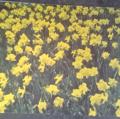Stephanie Jane recenzis Hildegard of Bingen de Honey Meconi
A fascinating history
3 steloj
Featuring a female authored biography of a woman each month for my ReadingWomen project has led me to become more attuned to spotting such works so I was pleased to discover Honey Meconi's biography of Hildegard of Bingen recently on NetGalley. A twelfth century nun, Hildegard would have been considered an exceptional polymath by today's standards and she cleverly took advantage of the relative freedom allowed her by her monastic life to write extensively on matters from spirituality to science as well as composing dozens of plainchant works. That so many of her songs and words are still in existence today is something of a miracle - one important work was moved to Dresden for safekeeping during World War Two! (It is known to have survived the firestorm, but vanished around the time the Russian army arrived.)
Meconi has put together a engrossing recounting of the life of this fascinating …
Featuring a female authored biography of a woman each month for my ReadingWomen project has led me to become more attuned to spotting such works so I was pleased to discover Honey Meconi's biography of Hildegard of Bingen recently on NetGalley. A twelfth century nun, Hildegard would have been considered an exceptional polymath by today's standards and she cleverly took advantage of the relative freedom allowed her by her monastic life to write extensively on matters from spirituality to science as well as composing dozens of plainchant works. That so many of her songs and words are still in existence today is something of a miracle - one important work was moved to Dresden for safekeeping during World War Two! (It is known to have survived the firestorm, but vanished around the time the Russian army arrived.)
Meconi has put together a engrossing recounting of the life of this fascinating woman from the information still available. I learned much about the realities of her daily life and the struggles she faced at the head of her own abbey in Germany. However, not being au fait with twelfth century church music - or any church music for that matter - I came unstuck when attempting to understand Meconi's detailed descriptions of Hildegard's musical compositions. I felt this lengthy section needed to have been recorded as an audio book so I could have actually heard the segments of her antiphons, responsaries and the like while they were discussed.
I would recommend Hildegard of Bingen as a fairly quick read for readers who enjoy medieval or religious history, especially those who appreciated Dava Sobel's Galileo's Daughter as the two books touch upon similar themes.

